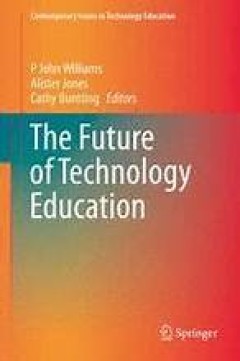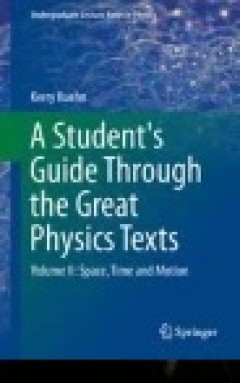Filter by

Die Zukunft des MINT-Lernens – Band 1
Dieser Open-Access-Sammelband stellt Perspektiven auf digitalen MINT-Unterricht und die Lehrkräftebildung der Zukunft dar. Auf Grundlage aktueller Forschungsergebnisse beantwortet er aktuelle Fragestellungen, etwa: Welche Kompetenzen und welche Lerninhalte werden für die Herausforderungen von morgen benötigt und welchen Beitrag können die MINT-Fächer dazu leisten? Inwiefern kann die Digita…
- Edition
- 1
- ISBN/ISSN
- -
- Collation
- -
- Series Title
- -
- Call Number
- X, 238

Insights from Research in Science Teaching and Learning: Selected Papers from…
This book includes studies that represent the state of the art in science education research and convey a sense of the variation in educational traditions around the world. The papers are organized into six main sections: science teaching processes, conceptual understanding, reasoning strategies, early years science education, and affective and social aspects of science teaching and learning. T…
- Edition
- -
- ISBN/ISSN
- 978-3-319-20073-6
- Collation
- IX, 313
- Series Title
- -
- Call Number
- 370 INS

The Future of Technology Education
Twenty-five years ago there was increasing optimism in policy, curriculum and research about the contribution that technology education might make to increased technological literacy in schools and the wider population. That optimism continues, although the status of technology as a learning area remains fragile in many places. This edited book is offered as a platform from which to continue…
- Edition
- 1
- ISBN/ISSN
- 978-981-287-170-1
- Collation
- XII, 281, 7 b/w illustrations, 4 illustrations in colour
- Series Title
- Contemporary Issues in Technology Education
- Call Number
- -

The Future in Learning Science: What’s in it for the Learner?
This volume considers the future of science learning - what is being learned and how it is being learned - in formal and informal contexts for science education. To do this, the book explores major contemporary shifts in the forms of science that could or should be learned in the next 20 years, what forms of learning of that science should occur, and how that learning happens, including from th…
- Edition
- 1
- ISBN/ISSN
- 978-3-319-16543-1
- Collation
- XV, 299, 11 b/w illustrations
- Series Title
- -
- Call Number
- -

Imaginative Science Education: The Central Role of Imagination in Science Edu…
This book is about imaginative approaches to teaching and learning school science. Its central premise is that science learning should reflect the nature of science, and therefore be approached as an imaginative/creative activity. As such, the book can be seen as an original contribution of ideas relating to imagination and creativity in science education. The approaches discussed in the book…
- Edition
- -
- ISBN/ISSN
- 978-3-319-29524-4
- Collation
- XXII, 283
- Series Title
- -
- Call Number
- 370 IMA

The Future in Learning Science: What’s in it for the Learner?
This volume considers the future of science learning - what is being learned and how it is being learned - in formal and informal contexts for science education. To do this, the book explores major contemporary shifts in the forms of science that could or should be learned in the next 20 years, what forms of learning of that science should occur, and how that learning happens, including from th…
- Edition
- -
- ISBN/ISSN
- 978-3-319-16543-1
- Collation
- XV, 299
- Series Title
- -
- Call Number
- -

A Student's Guide Through the Great Physics Texts: Volume I: The Heavens and …
This book provides a chronological introduction to the sciences of astronomy and cosmology based on the reading and analysis of significant selections from classic texts, such as Ptolemy’s The Almagest, Kepler’s Epitome of Copernican Astronomy, Shapley’s Galaxies and Lemaître’s The Primeval Atom. Each chapter begins with a short introduction followed by a reading selection. Carefull…
- Edition
- Ed. 1
- ISBN/ISSN
- 978-1-4939-1360-2
- Collation
- XXVII, 396
- Series Title
- Undergraduate Lecture Notes in Physics
- Call Number
- 501 KUE s

Embracing Indigenous Knowledge in Science and Medical Teaching
The focus of the book is on different ways of knowing: the western scientific way (reductionist, dualistic and materialist) versus the indigenous approach (holistic, non-dualistic, and spiritual). It discusses both science and medicine in the context of the challenges experienced in introducing science and medicine into Africa through imperialism, colonization, and globalization. It looks at se…
- Edition
- 1
- ISBN/ISSN
- 978-94-017-9300-1
- Collation
- 14 b/w illustrations, 1 illustrations in colour
- Series Title
- -
- Call Number
- -
 Computer Science, Information & General Works
Computer Science, Information & General Works  Philosophy & Psychology
Philosophy & Psychology  Religion
Religion  Social Sciences
Social Sciences  Language
Language  Pure Science
Pure Science  Applied Sciences
Applied Sciences  Art & Recreation
Art & Recreation  Literature
Literature  History & Geography
History & Geography